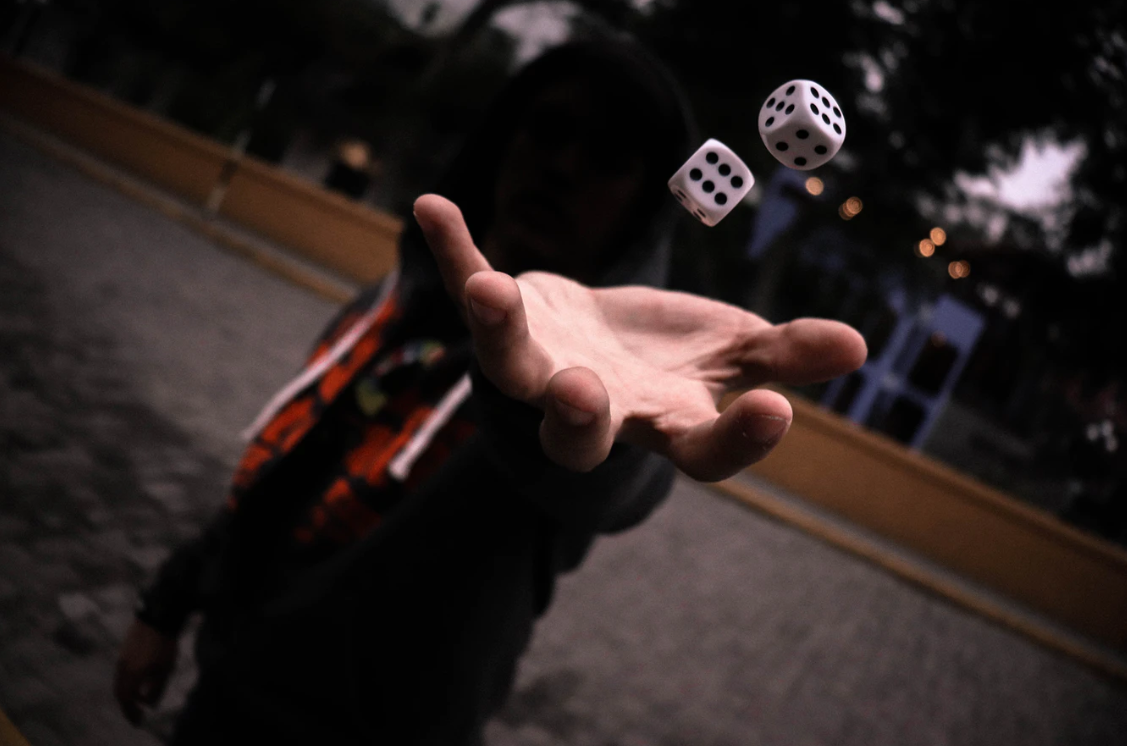Have you ever made a bet with a friend and won? For that brief moment, you feel excited and rewarded. Have you won the fantasy football weekly pot of money at your office? That extra $100 feels incredible, and you did not feel bad when you blew it on something you did not need.
Have you ever gone to a casino and hit it big? The bells went off, the lights started flashing, and every other casino patron gave you the evil eye. You feel great! The dopamine in your brain is releasing at an enormous amount, and for hours afterward, you feel high.
The next day you wake up, think about the extra money you have, smile, and continue with your routine of work, family, and responsibilities.
Some people may go back to their ordinary life after winning, but they cannot stop thinking about the high they felt when they won. When I say they cannot quit thinking about the high, I mean they obsess over it.
Before long, they find themselves back at the casino, chasing the win that made them feel high.
When they quickly realize they are hunting something that is not going to happen, they continue. Even when they lose all their money, relationships, jobs, and material items, they cannot quit.
Why? Because they have developed an addiction to gambling.
And they are not alone! In California, there are one million people affected by gambling addiction, and despite adverse consequences, the behavior continues.
There are ways to stop a gambling addiction, however. First, it is essential to understand what it is.
What is a Gambling Addiction?
I used the example of going to the casinos to gamble to describe someone with a gambling addiction. However, gambling can take many forms. Today, online gambling is one of the most popular ways to gamble. Gambling in this way has become so easy, you enter a payment source, and you can gamble from the comfort of your home.
Gambling is when you exhibit risky behavior like wagering something of great importance for just a chance of winning. Winning can be an increase in money, gaining new material items, or anything else a person sees as valuable.
Whether you are betting on the local football game or taking road trips to Vegas, it is all gambling, and it can all become part of an addiction. But the high of that first time win rarely returns. Many people quickly realize the only feelings they have are negative, like depression and anxiety.
How to Know You Are Addicted?
Some signs and symptoms can tell you if you are addicted to gambling. Are you are stealing money to gamble, lying about gambling, or thinking about gambling so much it distracts you from other responsibilities? If you have tried to stop gambling without success. If you have had to ask for help from others (to bail you out of a problem or loan you money). If you experience restlessness, anxiety, or any other withdrawal symptoms when you try to avoid gambling. Finally, if you have faced negative consequences like the loss of relationships, jobs, cars, homes, and other people and things of value.
Any of these can mean you could be facing an addiction to gambling. If you recognize these symptoms in your life, it is time to start being honest with yourself.
Admit What Is Real
Taking a hard look at yourself and your behaviors and then admitting when you have a problem is key to stopping a gambling addiction. Once you do this, all the other pieces of the recovery puzzle tend to fall into place
Keep in mind your brain is going to try to convince you that you do not have a problem however you may. There is help, and you can overcome your addiction. Best of all, you do not have to start this journey alone.
Educate Yourself
It makes sense that when we want to learn how to do something, we start educating ourselves. The same is true with stopping a gambling addiction. Who better to teach you than an addiction specialist?
To successfully overcome an addiction, get help from the pros. Many people think they will appear weak if they get help. Or, they feel guilty if they ask for help. However, those thoughts are examples of how your brain is trying to stop you from getting help.
Addiction is a brain disorder, and it can be very confusing at times. The urges to gamble are too strong at the beginning of recovery, making it extremely difficult to avoid compulsive behaviors. So, you give in to the urges, feel guilty, and say you will try again tomorrow.
Because of this fact, getting help from a licensed addiction specialist is essential.
There are specific methods and techniques developed that will help you successfully stop your addiction, but may be difficult to implement alone.
Professional help can mean working with an individual gambling addiction specialist, attending support groups, family counseling, and all the above.
Treat Co-Problems
The term "co-problem" means you have more than one problem happening at the same time. Sometimes, one problem can cause the other or make the other worse. For example, if you have a gambling addiction, you may also have a mental health disorder like depression or anxiety.
You may have had a mental illness before you started gambling, and when you felt the high associated with winning, you started self-medicating your mental illness with gambling. That only works for a short period. Then the gambling addiction increases the mental illness.
While working with a gambling addiction specialist, you can also treat mental health issues at the same time.
In conclusion, you can arrest a gambling addiction and move into abstinence and recovery. You deserve a life free of the hold that gambling can have on you. Start today by admitting you have a problem, believing you are worthy of help, and then reaching out for help. You can do it!
